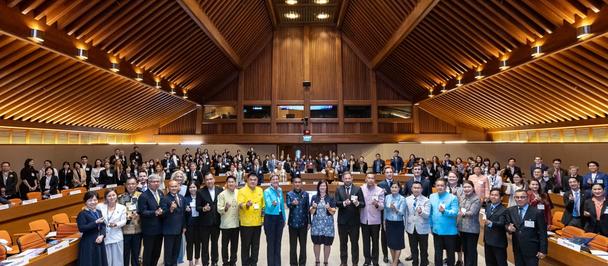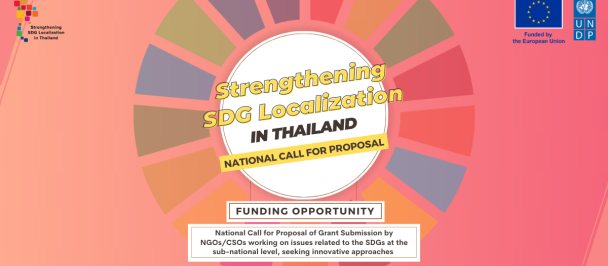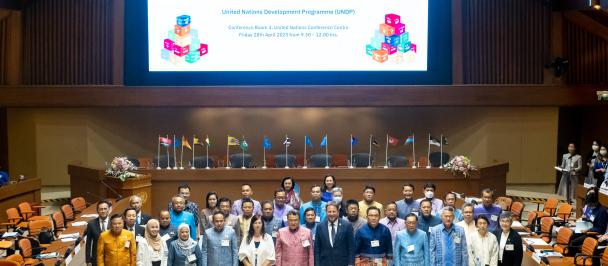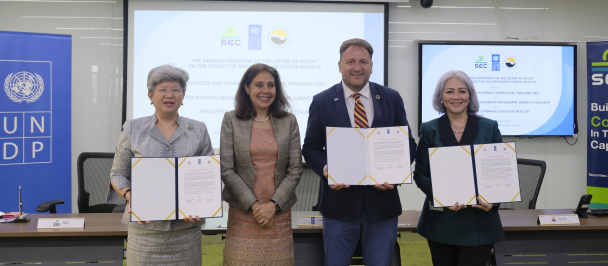SDG Localization in Thailand
Background & Development Challenges
SDG localization can be used as a structure to enable bottom-up dialogues and provide a framework for local development policy, thereby encouraging greater participation that drive locally owned responses to inequalities at the community-based level. Thailand can benefit from a more integrated multi-level and multi-stakeholder approach to promote transformative agendas at the local level to better ensure that no one is left behind in the development process.
Thailand has recognized the importance of SDG localization and in 2019 the National Sustainable Development Council made it a priority area. The National Economic and Social Development Council (NESDC) and the Ministry of Interior (MOI) are working in close collaboration to implement this decision. Nonetheless, COVID-19 and the climate crisis have slowed down the progress achieved towards the goals. Therefore, to acclerate peace and achieve the SDGs, Thailand is emphasising localizatoin of the SDGs.
Localizing the SDGs in Thailand is crucial since taking a bottom-up approach to achieve SDGs empowers local and regional governments as well as other stakeholders to actively engage in the process of planning, monitoring and implementation, as well as identifying gaps to achieve the SDGs which is specific to their location.
Challenges such as lack of accessible data, lack of awareness on SDGs and SDG localization and insufficient capacity on sustainable development at the local level can make this process challenging, which is some of the areas this project will aim to address to create opportunities to explore innovative ways to address different challenges that are currently hindering the process of localizing and implementing the SDGs at the sub-national level.
Objectives
This project aims to increase participation of all stakeholders at provincial level, provide them with the data and knowledge needed to advocate for change and be able to identify where there are gaps that needs to be filled, where to prioritize initiatives and how to find new and innovative ways to approach issues faced by each province. By capacitating civil society and local authorities to be more aware of and engaged in the SDG process, the aim is to create more ownership of the process at a sub-national level and ultimately improve the space to advocate for issues faced at local level and improve dialogue between rights holders and duty bearers, improve provincial development plans and connect local challenges and achievements to the national policies and the SDGs.
Expected Outcomes
Develop SDG profiles for 15 target provinces
- SDG profiles successfully developed for 10 target provinces.
- Availability of data create an overview of each target province on their progress on the SDGs. This will lead to discussions about the findings which in turn will raised awareness on the importance of the SDGs and SDG localization among relevant stakeholders in Thailand for advancing the 2030 agenda.
Organize multi stakeholder consultations to discuss the outcome of the SDG profiles and engage community actors
- Discussions about the findings of the SDG profiles will result in raised awareness about local issues and challenges, and which local development solutions are needed as well as the importance of the SDGs and SDG localization among relevant stakeholders in Thailand for advancing the 2030 agenda.
- A whole-of-society approach to SDG localization successfully promoted, bringing state and non-state actors together from central, provincial and local levels, providing a platform for engagement on development issues and an inclusive manner.
Support to civic consultation of provincial plan
- One civic consultation successfully carried out reviewing a provincial plan identifying where improvements are needed according to realities at the local level and progress on the SDGs (using the SDG profiles and the consultation as a starting point).
- Solid recommendations provided.
- A strong gender perspective adopted.
Conduct awareness raising, trainings and develop training materials on SDGs and SDG localization for different stakeholders.
- Capacity building carried out for non-state actors (including CSOs and marginalized groups) successfully capacitated them with tools to participate more actively in local processes, making them better equipped to take actions at the local level to contribute to the SDGs.
- Capacity building carried out for state actors successfully capacitated them to better align their work to the SDGs and promote and engage in SDG localization.
Communications, visibility, and knowledge products
- Capacity building materials, communication, visibility and knowledge products developed successfully led to wider knowledge, discussion and engagement among stakeholders around SDG acceleration and SDG localization in Thailand.
- Communication about the project such as photo and video series, articles and social media posts strengthen engagement of all stakeholders on SDG localization.
Provide grants (financial support to third party) to civil society actors working on issues related to the SDGs at the local level, seeking innovative approaches.
- Supported civil society with grants that successfully build awareness around the SDGs, build capacity for civil society groups and the general public working on specific issues related to the SDGs and support initiatives that can led to new and innovative local development solutions that address priority SDGs (based on location).
- Civil society actors are more aware, capacitated and empowered to take action and promote SDG acceleration in their communities.
Related Signature Solutions: UNDP Strategic Plan 2020-2025
- Poverty and Inequality
- Governance
- Resilience
- Gender Equality
Key Achievement
- Developed SDG profiles for 15 target provinces
- Organized multi-stakeholder consultations to discuss the outcome of the SDG profiles and engage community actors
- Supported to civic consultations on provincial plans
- Conducted awareness raising, trainings and develop training materials for SDG localization for different stakeholders
- Produced communications, knowledge management products and visibility
- Provided grants to civil society actors working on issues related to the SDGs at a local level, seeking innovative approaches
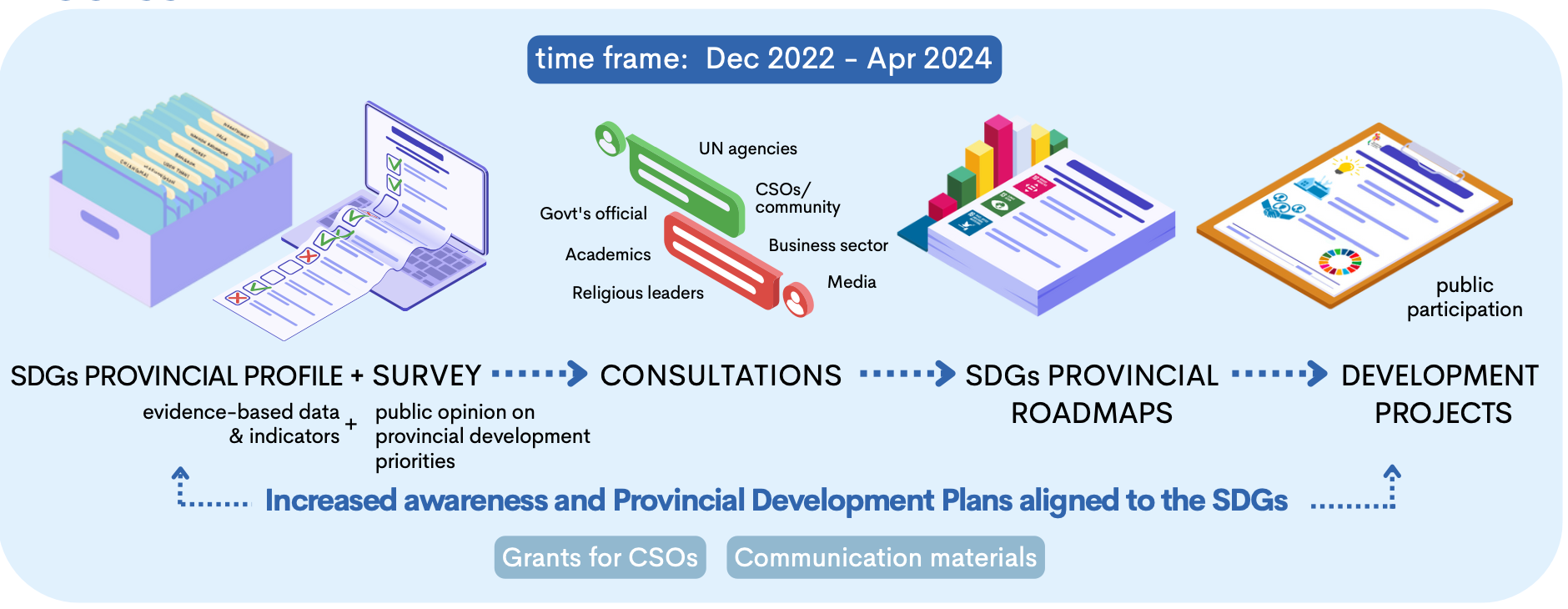
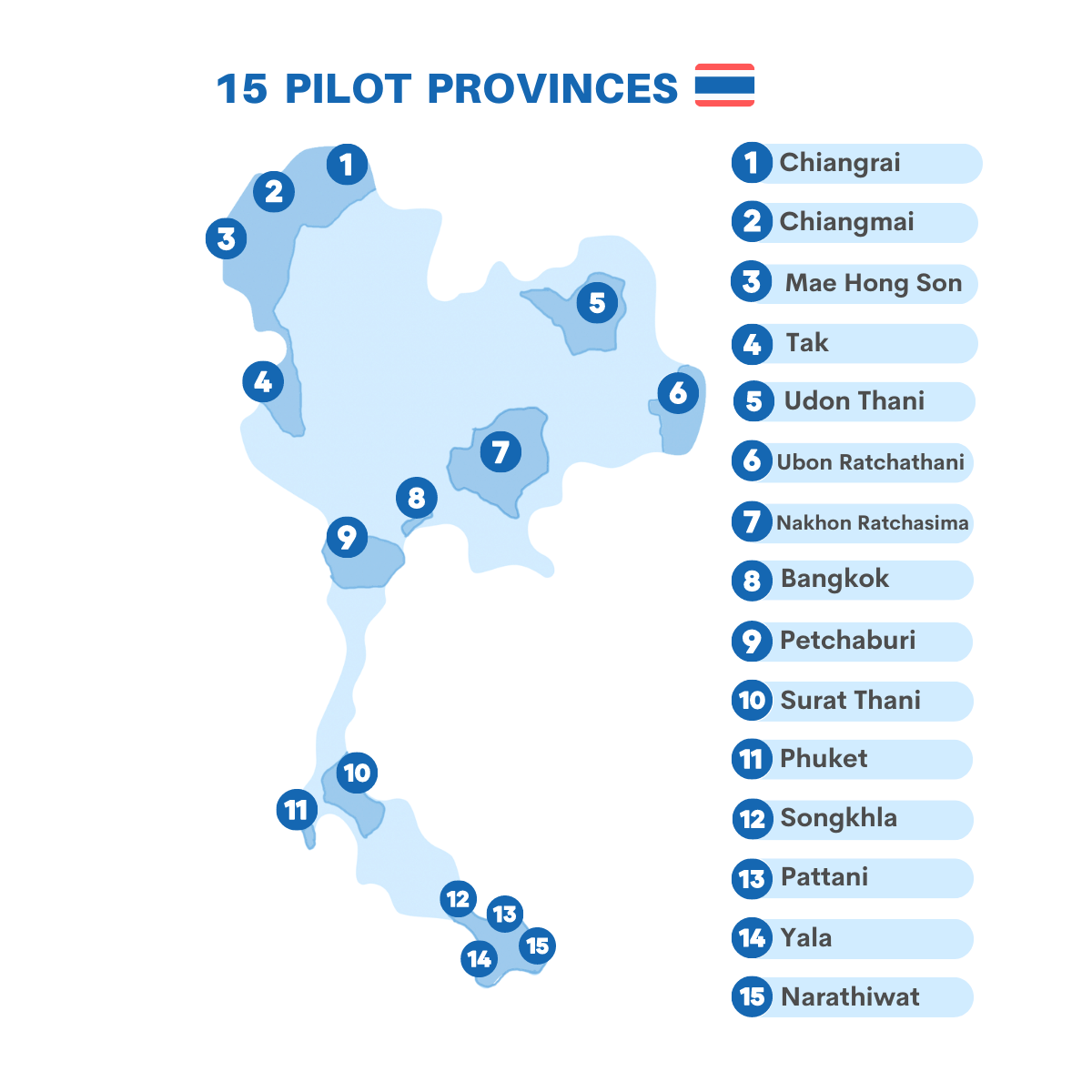

 Locations
Locations

